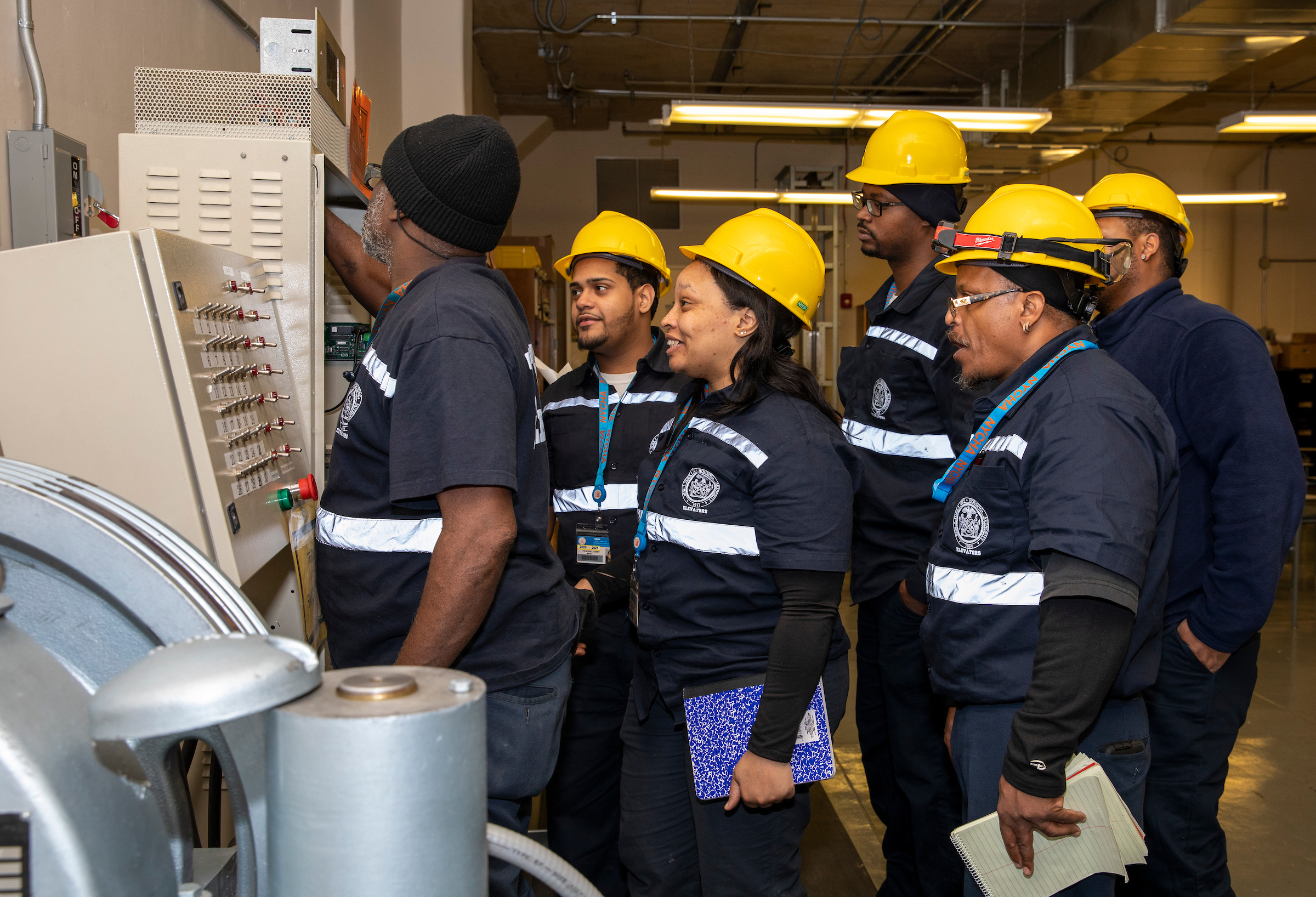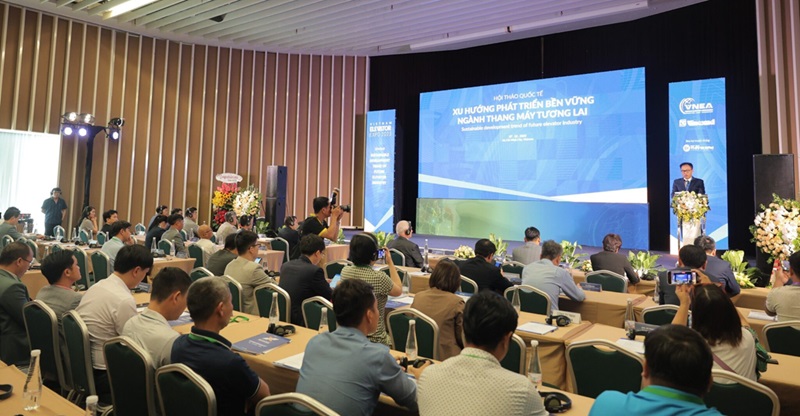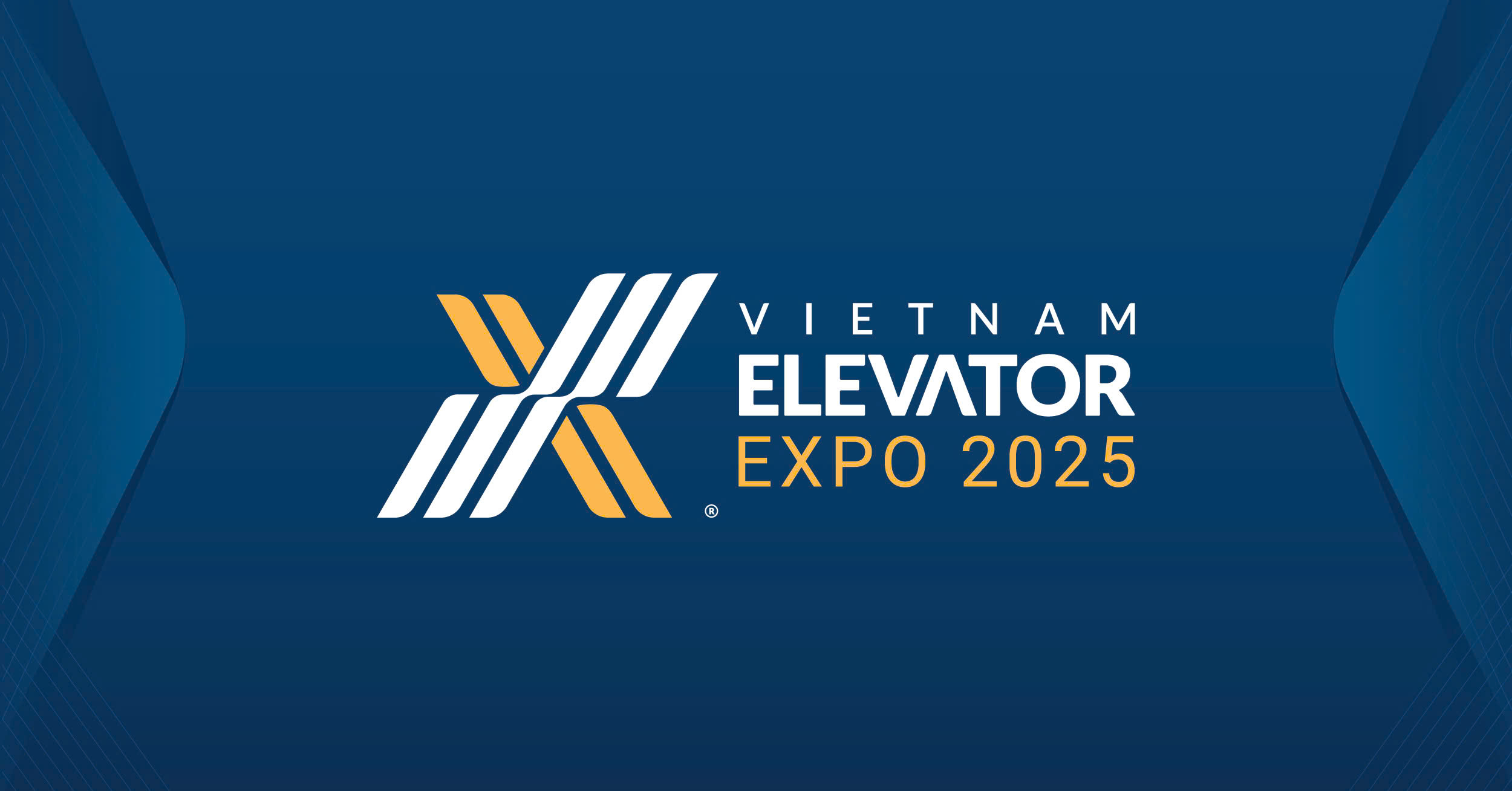EM – Programs, processes and methods of training elevator technicians in different countries have similarities and differences. However, European and American training standards are studied and applied by many countries.
Elevator manpower training in Europe and Japan
In Europe, the apprenticeship process for elevator technician development is well established. Many educational institutions offer training courses for elevator workers to prepare for local exams. Along with that, European-based elevator companies also offer advanced training programs for engineers, technicians and other positions in the elevator sector.
In Japan, elevator inspectors must be licensed under The Building Standard Law of Japan (BSLJ). The training for licensing purposes is conducted by the Japan Construction Equipment and Elevator Center. After completing the training and passing the test, the candidates are officially issued with an elevator inspection certificate.
Also here, many manufacturing companies have training centers that train their employees in elevator installation or maintenance techniques. Courses here are often held periodically to continuously improve the qualifications and skills of elevator staff.
The form of training in Europe and Japan is aiming at the timely supply of highly skilled labor for the rapidly growing elevator industry.
Training inspection personnel in China
China’s elevator industry has been developing at an unprecedented rate recently. With a growth of nearly 1 million elevators installed each year, it is not surprising that China needs a lot of qualified elevator inspectors.
Several years ago, the China Special Equipment Inspection and Research Institute (CSEI) began to study the training programs and inspection procedures of other inspection bodies in the world. Several delegations have been sent to the United States to study the implementation of the auditor’s competency testing program and to learn how the accreditations are conducted in major administrative regions. CSEI also arranges for its staff to go on internships in Germany and other European countries to understand how accreditation is conducted and how to train accrediting staff.

An advanced elevator training course in New York – USA
Finally, CSEI developed an in-depth specialized training program for inspection personnel based on the concept of Elevator Tester Competency in the US but following the practice in Europe. In much of Europe, acceptance and testing are carried out by accredited accrediting bodies, many of which are designated to assess product conformity prior to placing on the market. This model is said to fit the CSEI structure very well. CSEI is currently responsible for training elevator inspectors in the country of billions of people.
Graduate training in elevator engineering and public awareness
It is recognized that the elevator industry is becoming more and more complex and the need for a master’s degree or higher is essential. One of the leading educational institutions to address the need for elevator engineering training at the master’s level is the University of Northampton School of Science and Technology in Northampton, UK. This school offers advanced courses for engineers, consultants and senior management, research institutions in elevator design, maintenance, electrical and mechanical equipment, codes and standards, and vertical conveying system principles.
Students are required to write a thesis as part of the curriculum. The University of Northampton also offers a doctoral degree in Elevator Engineering. This is a futuristic approach to an increasingly complex field of engineering. It is expected that other higher education institutions will follow in Northampton’s footsteps in offering training at advanced levels.
In addition to education and training, it is very important to create a change in awareness for the community about the elevator industry.
In the US, The Elevator Escalator Safety Foundation in the U.S. conducts education for children in classrooms in partnership with schools. Foundation staff and volunteers gave presentations that used videos and coloring books to engage children. Through this process, hundreds of thousands of children have been involved in raising awareness and are judged to have lasting effects. This is believed to be an effective model to raise awareness about safe use of elevators and has been popularized in Canada and linked with safety-interested organizations in the UK and Argentina. In Korea, the educational program titled “My Friend, Elevator” has been developed by The Korean Elevator Safety Institute in cooperation with schools. The program uses a set of materials containing CDs, manuals, quizzes and other materials used by teachers to educate children as part of the school curriculum.
Elevator safety is the top concern of users and related authorities. These agencies and related persons who are technical staff, experts in the maintenance, inspection, repair and installation of elevators must have full professional knowledge and experience in elevators. They must also be familiar with the codes and standards and regulations for the safety of elevators and escalators, applicable in their jurisdiction. This will promote public awareness, towards attracting employment to the elevator industry./.



